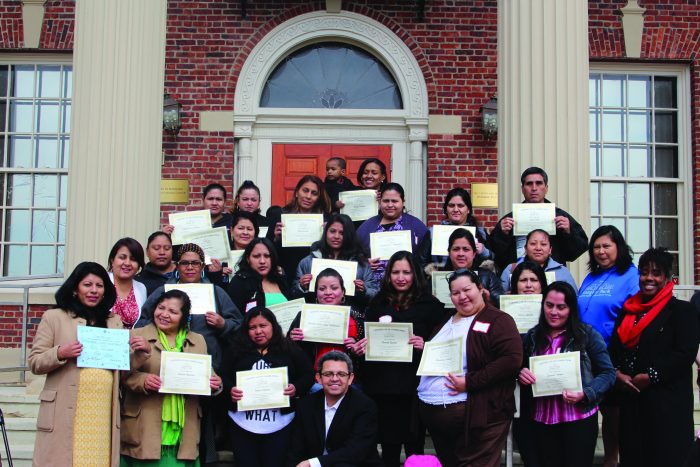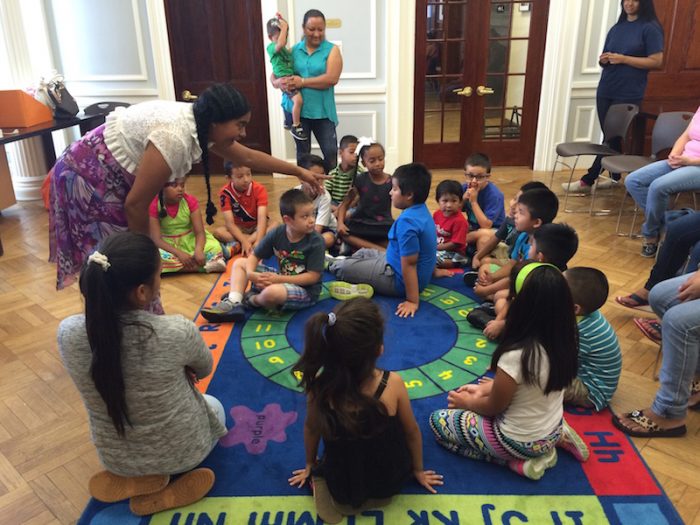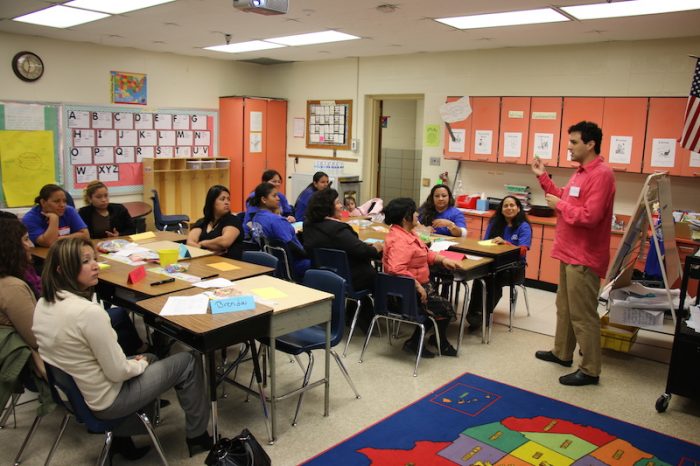EDITOR’S NOTE: Names have been changed to protect confidentially.
Carla was nervous about being a panelist during the National PTA Legislative Conference in Washington, D.C. in early March. Carla would be asked to share ways to better engage underserved communities—specifically immigrant parents like herself. The National Council of La Raza’s Education Programs invited Carla and two other mothers from Prince George’s County, Maryland, to the conference. She would be speaking in front of an audience who could impact national policy conversations being debated just down the road on Capitol Hill. She was bombarded with questions from participants intrigued by how a mother of four, undocumented, with limited English skills had become such a fearless leader of her children’s school and community despite the changing political rhetoric that was targeting families like her own. Carla’s response was straightforward: “I am no longer afraid and know that my voice is powerful and needed.”
Since 2014, 100 parents, like Carla, living in Langley Park, Maryland (a community with over 17,000,000 residents of which 70% are foreign-born)have become empowered advocates through CASA’s Learning Together (Aprendiendo Juntos) initiative. Learning Together is an Investing in Innovation (i3) funded family engagement bilingual initiative designed to build parents’ skills, confidence, and social capital to navigate the U.S. education system. The program is a partnership between CASA, Prince George’s County Public Schools, Urban Institute, University of Maryland and the U.S. Department of Education. Central to Learning Together’s theory of action is a two-generation approach focused on improving the quality of life and positively impacting academic outcomes for parents and children.
Learning Together uses six key components:
- Community Promoters
- Community-wide events open to the entire community
- Education Committee for parents
- Youth programming and the bedrock of the LT initiative
- Parents-as-Teachers classes
- Teacher Connections Institute
Our Parents-as-Teachers classes serve as the first touch point to CASA for some parents. The classes are a foundation to understand how to navigate the school system and enhance their communication and advocacy skills all in the language most common spoken by participants. The classes also use culturally competent and authentic examples to emphasize their rights and responsibilities in the school system while acknowledging that parents have rights that extend into their larger community.
One of the most popular classes includes an activity on the school budgetary process. Through this class, many parents realize that significant decisions are being made on their children’s behalf yet their voices are not included in the decision-making process. This class demystifies the budgetary process by giving them an overview of how and when a budget is created and asks them to create their own budget as a collective. Parents are given fake money and asked to deposit into categories they have prioritized. Finally, a comparison exercise reveals their priorities versus the priorities of the school district. This activity is revelatory for some parents and motivates them to become informed and engaged in this process. Our efforts have increased the number of parents from Langley Park attending Board of Education and County Council meetings—as more than 30 parents and students have testified in front of the Board of Education and Prince George’s County Council during the last two years.
CASA’s belief in our members as the core of our work means that our only role is to find the resources and support they need to facilitate their empowerment. We do not have formal positions of engagement specialists or outreach caseworkers. All our staff is prepared to serve our families because we know that change may start in schools but should also impact larger communities. For example, Carla organized parents to advocate that the city of Hyattsville be recognized as a sanctuary city. And the need for these levels of parent engagement will be essential as we set forth in our current political climate. As Carla and the other invited mothers noted during the National PTA Legislative Conference, their experiences are valuable and much can be learned by others about how to engage their own parent communities in the change that is needed in their schools. They left the conference feeling powerful and motivated to help other parents in other communities locally, but also regionally, to launch strong and sustainable PTAS. For Carla, it confirmed her belief that advocating for the wellbeing of her children goes beyond the school hallways and into her community and other communities across this country.
Thinking about the community you live in: What kind of programs are available in your area that expand and enhance parents’ advocacy skills at school and beyond? How is your school district incorporating parent voice in policies and programs that impact children? It is pivotal, especially as diverse communities continue to grow across school districts in this country, that we build spaces for parent voice to be heard and included in decision-making processes. Parents bring their children every day to our schools with the hope that their lives will be transformed, parents are one of the biggest assets to ensure teachers, staff and administrators are equipped to do just that.
***
Maritza Solano is CASA’s director of education. She tweets from @MrtzSolano.





